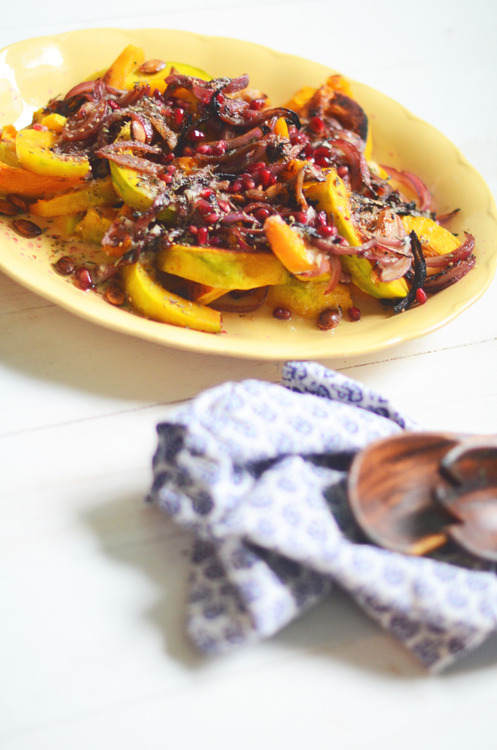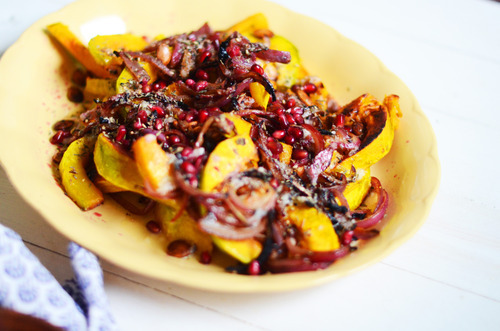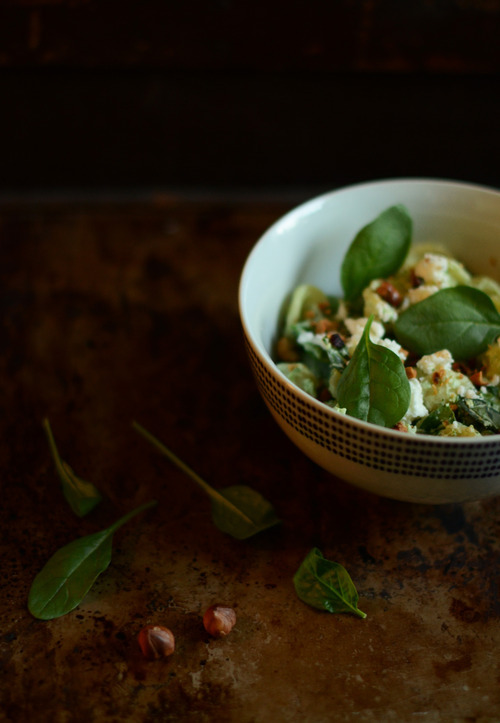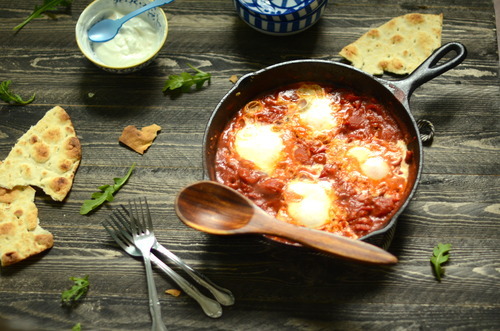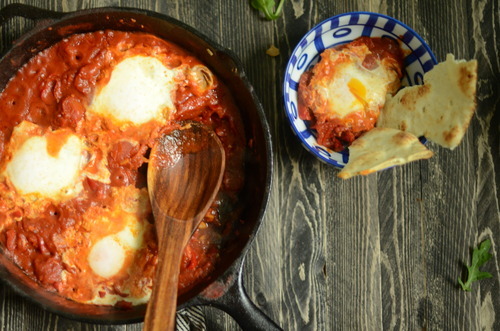Seared Eggplant with Macedonian Feta and Za'atar
/Eggplants are a wildly underestimated vegetable.
Here’s the thing of it: I love eggplants.
Here’s the other thing of it: I’m one of the few.
Here’s why: There are a lot of bad eggplants out there.
There are a lot of hothouse eggplants, a lot of flavourless eggplants, a lot of eggplants that pretty much just taste like soggy bitterness.
Here’s the other reason why: There are a lot of people who don’t know how to cook eggplants properly. They cook them until they get stoggy, or they don’t cook them enough. Or they cook them with water so they lose any hope of a nice texture.
And all of this may have led you to thinking that you don’t like eggplants and that it’s hard to cook, and the thing of it is, it’s super easy, the trick is lots of olive oil, high heat, and a healthy pinch of salt.
I’ve known this all for a while, but it took Jordan eating eggplant at our favourite Palestinian restaurant to convert him. There it comes grilled with halloumi, and the most puckeringly perfect lemon and za’atar dressing that you soak up with loads of extra pita. (Za’atar is a middle eastern spice mix with dried savary, thyme, sumac and sesame seeds.) It’s perfect in every way.
This is my version of that dish. I sear the eggplant instead of grilling it, because I don’t have a grill. Knock you’re socks off and use the BBQ if you have one. I also use Macedonian feta instead of halloumi, because I am royally obsessed with the Macedonian feta at my local cheese shop, and I want to put it on everything. But if you can’t find it (it’s a thousand times creamier than regular feta) feel free to use the halloumi.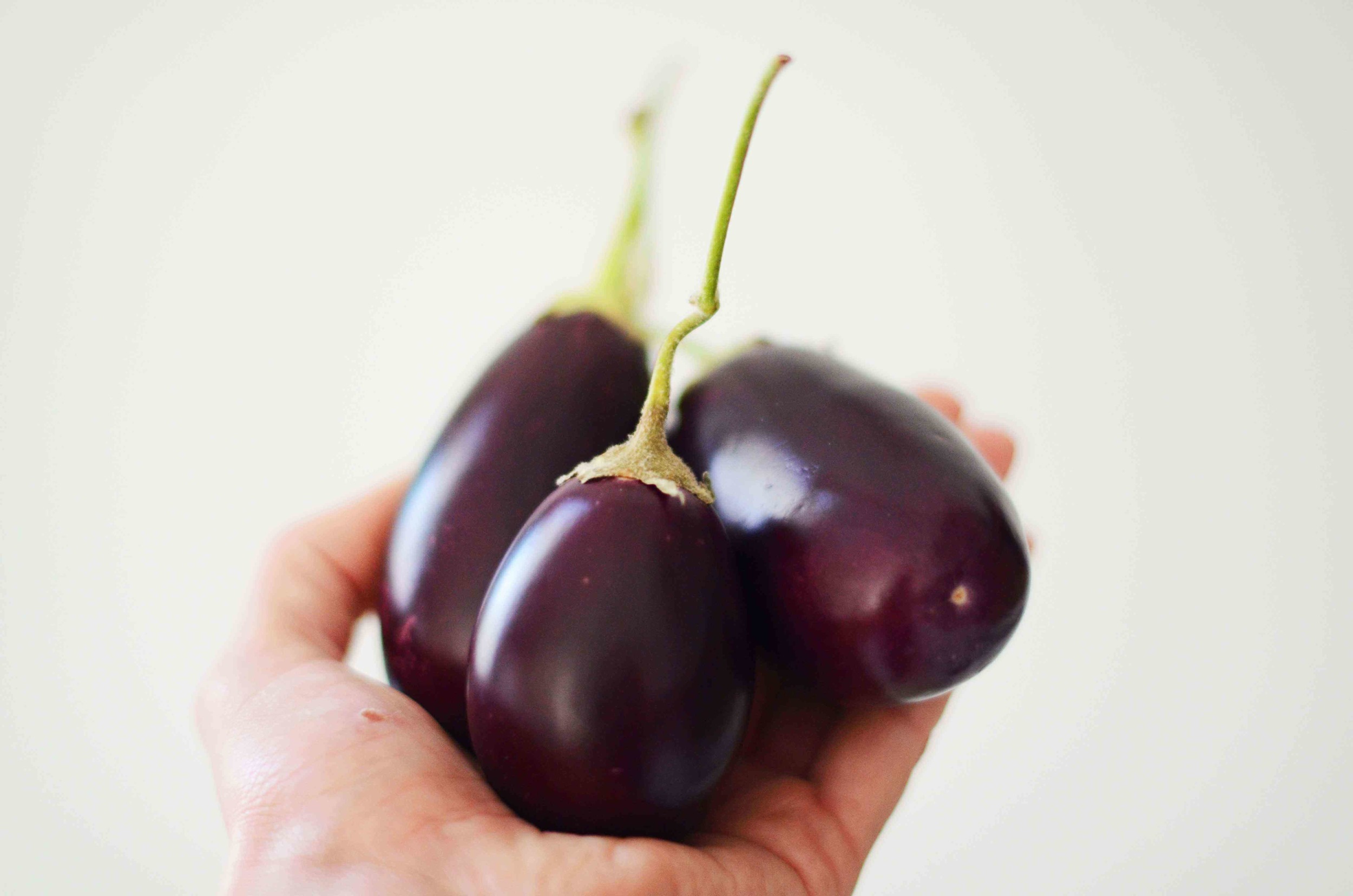
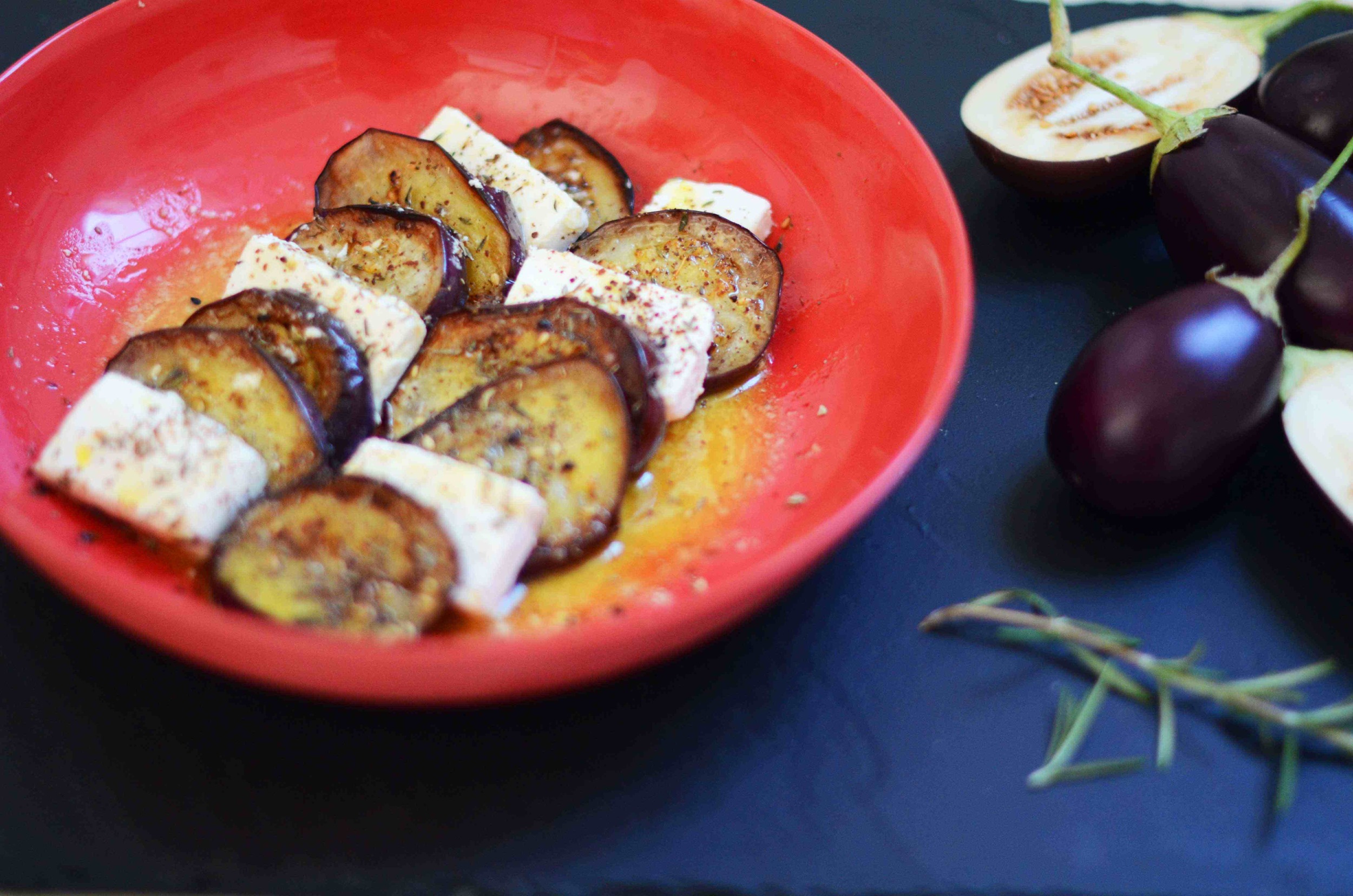
Eggplant with Macadonian Feta and Za’Atar
6 Small Eggplants, ot 1 Large, sliced into inch thick slices.
250g Macedonian Feta, or Halloumi
1 Lemon
¾ cup Olive Oil
¼ cup Canola or Avacado Oil
1tbsp Za’atar
1 small clove of Garlic, minced or pureed.
Salt and Pepper
Heat a cast iron pan over medium heat .
Mix together the canola oil with ¼ cup of the olive oil.
Pour a good splash of that into the pan, and put in a layer of the eggplant, salt it generously.
Let it cook until the eggplant browns then flip it and let it brown on the other side salting it too, adding more of the oil mixture if neccessary. The eggplant should now be very soft.
Remove it, add more oil into the pan and cook the remaining eggplant.
Slice the feta and layer it with the eggplant on a dish.
Make the dressing: mix the juice of half the lemon, garlic, and a good pinch of salt. Slowly add in the remaining olive oil. Check for seasoning, and add a bit more olive oil, salt or lemon as needed.
Pour that generously over the eggplant, sprinkle the za’atar over top and serve!




